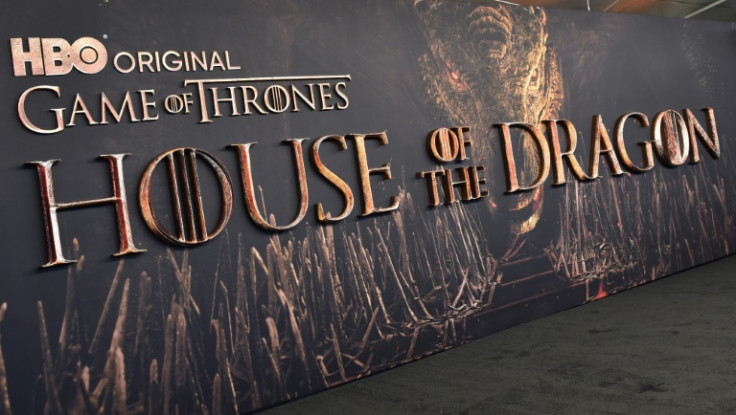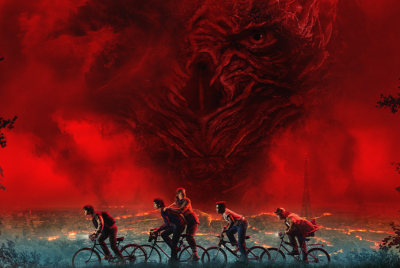The Winds Of Winter Is Unfinished—George R.R. Martin's AI Lawsuit Unveils The Brutal Truth For Fans
George R.R. Martin's high-stakes lawsuit against OpenAI and a fresh art controversy reveal the brutal truth behind The Winds of Winter delays.

For the legions of fans devoted to the Seven Kingdoms, patience isn't just a virtue; it is a prerequisite. Yet, even the most steadfast loyalty can be tested when modern technology clashes with beloved high fantasy.
While the literary world holds its collective breath for the next instalment in the saga, a fresh controversy has erupted, threatening to overshadow the legacy of the series.
Penguin Random House recently unveiled a 20th-anniversary edition of A Feast for Crows with the intention of celebrating the franchise's history, but the release immediately sparked outrage rather than joy.

Controversy Strikes George R.R. Martin's Illustrated Edition
The backlash began almost immediately after the release. Keen-eyed readers and art enthusiasts scrutinised the new illustrations and noticed unsettling details that have become the hallmarks of generative artificial intelligence.
The images contained peculiar background artefacts, repetitive textures, and the classic tell-tale sign of machine generation: anatomically incorrect hands and feet.
Fans on social media platforms like X (formerly Twitter) and Reddit dissected specific plates, pointing out a depiction of the Iron Islands where crowds in the background dissolved into incoherent digital 'sludge', and a portrait of a major character that appeared to have six fingers on one hand holding a goblet.
What was meant to be a collector's item quickly became a subject of heated debate regarding artistic integrity.
The furore grew loud enough that George R.R. Martin's team had to step in to address the accusations directly.
Raya Golden, who manages art direction and licensing at Fevre River, took to the author's blog to issue a firm denial regarding the use of AI.
She clarified her role in 'approving all the licensed art that accompanies our SOI&F book driven materials,' and defended the creator behind the controversial images.
'To our knowledge and as presented by the artist who completed the work in question there was NO such programming used. While he is a digital multimedia artist and relies on digital programming to complete his work, he has expressed unequivocally that no AI was used, and we believe him.'
Golden reinforced their stance on the matter, assuring the fanbase that they have never, and will never, 'willingly work with AI generative artists in any way shape or form.'

George R.R. Martin Leads the Charge in High-Profile AI Lawsuit
The sensitivity regarding AI in the Westeros ecosystem is hardly surprising given the author's current legal battles.
George R.R. Martin has positioned himself as a staunch defender of human creativity, joining forces with the Authors Guild to take on the tech giants. He is currently one of 17 prominent authors suing OpenAI for what they describe as 'systematic theft on a mass scale' (via Independent).
This legal crusade began in earnest in 2023, with filings in a New York federal court alleging 'flagrant and harmful infringements of plaintiffs' registered copyrights.' The authors argue that ChatGPT functions as a 'massive commercial enterprise' built upon the unauthorised consumption of their life's work.
The lawsuit details specific instances where the programme generated content derived from Martin's copyrighted material, including an 'infringing, unauthorised, and detailed outline for a prequel' to Game of Thrones titled A Dawn of Direwolves.
According to court documents, this generated outline did not merely guess at themes; it utilized Martin's specific characters, such as Jon Snow and Tyrion Lannister, in a narrative structure that eerily mimicked the author's own pacing and plotting style, proving the AI had effectively 'digested' the entirety of the existing saga.
Mary Rasenberger, CEO of the Authors Guild, highlighted the stakes in a statement:
'It is imperative that we stop this theft in its tracks or we will destroy our incredible literary culture, which feeds many other creative industries in the US. Great books are generally written by those who spend their careers and, indeed, their lives, learning and perfecting their crafts. To preserve our literature, authors must have the ability to control if and how their works are used by generative AI.'
In a significant development, a US District Judge, Sidney Stein, recently denied OpenAI's request to dismiss the claims (via Reuters), validating the authors' argument that they could prove ChatGPT produces outputs dangerously similar to their original works.

Unending Delays: Where Stands George R.R. Martin on The Winds of Winter?
Amidst the legal and artistic turmoil, the primary question for fans remains unchanged: when will The Winds of Winter finally arrive? The road to publication has been paved with decades of anticipation and numerous false starts.
As far back as 2010, Martin had already completed four chapters focusing on Arya Stark, Sansa Stark, and Arianne Martell (via The Week), having moved material from A Dance with Dragons to the upcoming sixth book.
At that time, he deemed the transfer 'good news' and noted in July 2010 that he had finished 100 pages.
Given that the manuscript is expected to have over 1,500 pages, progress has been agonisingly slow. By 2022, Martin estimated he had written between 1,100 and 1,200 pages, leaving roughly 400 to 500 pages outstanding.
The author has attributed this sluggish pace to his perfectionism, confessing that he often ends up 're-reading some chapters that I'd written earlier, and I didn't like them well enough, so I kind of ripped them apart and rewrote them.'
Hopes were raised—and promptly dashed—last July when fans went into 'detective mode' following news of a meeting between Martin and his editors in London.
Martin quickly tempered expectations, stating the meeting did not 'signify that some momentous announcement is at hand', and promised that 'the word will not trickle out, there WILL be a big announcement...where and when I cannot say'.

The saga took another turn in October 2025. Martin offered a sombre reality check, using the context of the AI lawsuit to comment on the book's status. He noted, '[You] can't outlaw new technology. You can try, people have tried throughout history, but it's here to stay.'
However, he drew a line in the sand regarding his own creative process. Martin added, 'No computer will ever write The Winds of Winter,' a statement that he said 'serves as a clear indicator that the human writing process is still incomplete.' It serves as a brutal confirmation that the long winter of waiting continues.
Ultimately, the lawsuit unveils a harsh reality for the fanbase: the technology to finish the story technically exists, but Martin is fighting a legal war to ensure that a 'soulless' completion never happens.
Fans are left with the brutal truth that they must choose between an imperfect, algorithmically generated ending now, or a human masterpiece that may never arrive.
As the battle for the Iron Throne remains paused on the page, the battle for the soul of storytelling rages on in the courtroom.
George R.R. Martin's crusade against AI serves as both a shield for his legacy and a double-edged sword for his fans—guaranteeing that when winter finally comes, it will be written by a human hand, no matter how long it takes.
© Copyright IBTimes 2025. All rights reserved.




















